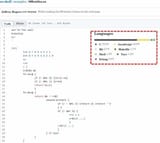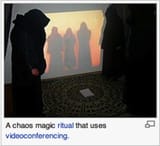Anonymous
7/5/2025, 5:30:06 PM
No.105808856
[Report]
>>105808864
>>105808865
>>105809691
>>105810208
>>105812320
>>105817857
>>105826989
>>105828990
the es shell, a shell with higher order functions (that doesn't suck as much)
> higher order function and lambdas
> rich return types
> syntax that's not shit
> operators are represented as functions so you can override/extend the shell capabilities
> exception support (although not the best error handling framework is enough for shell scripting)
> array support
seriously, what's your excuse for still using bash?
https://wryun.github.io/es-shell/
https://wryun.github.io/es-shell/paper.html
> higher order function and lambdas
> rich return types
> syntax that's not shit
> operators are represented as functions so you can override/extend the shell capabilities
> exception support (although not the best error handling framework is enough for shell scripting)
> array support
seriously, what's your excuse for still using bash?
https://wryun.github.io/es-shell/
https://wryun.github.io/es-shell/paper.html













